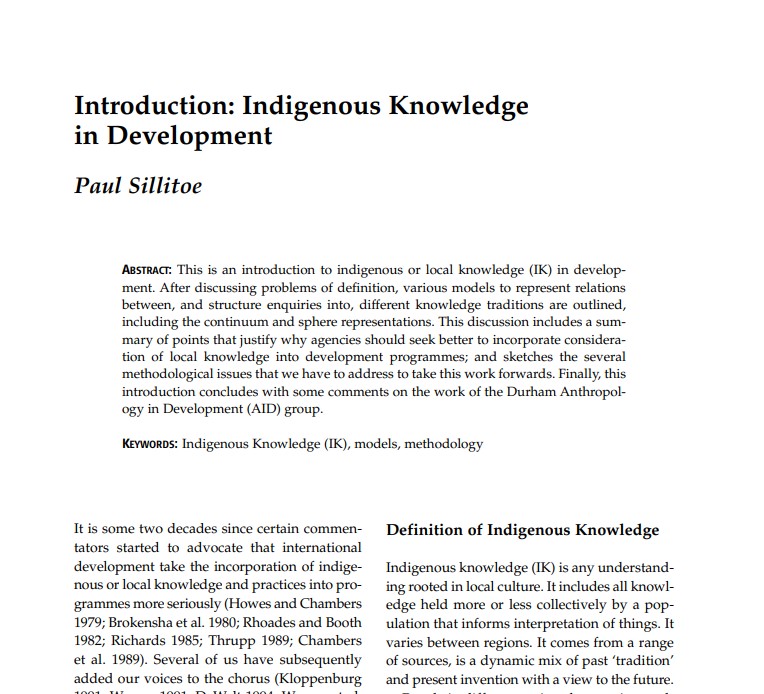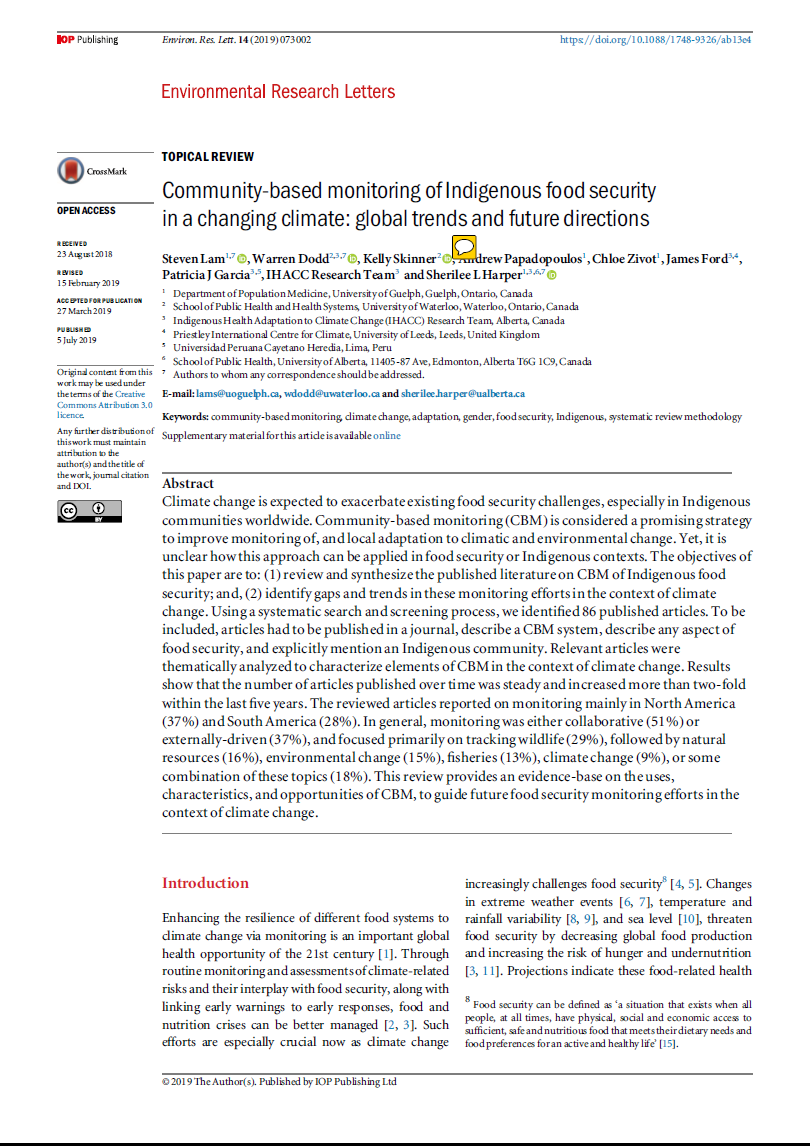Research Papers/Articles
Indigenous Knowledge on Climate Change Adaptation: A Global Evidence Map of Academic Literature
2020
Author(s): Petzold J, Andrews N, Ford JD, Hedemann C, Postigo JC
The study provides an overview of the evidence of indigenous knowledge for adaptation across regions and categorises relevant concepts related to indigenous knowledge and their contexts in the climate change literature across disciplines.
Communication and Dissemination of India's Traditional Knowledge
2023
Author(s): Mahesh G
The paper looks at TK communication and its challenges. The paper also discusses the recent Indian initiative on communicating scientifically validated TK. It is concluded that for a sustainable future, nations should deeply study the TK and TK practices. Nations such as India that have a rich knowledge base should leverage on the TK. Effective communication of the TK is a vital step towards this end.
.png)
Indigenous Knowledge of Northeast Women on Production of Ethnic Fermented Soybeans Foods
2008
Author(s): Tamang J P, Chettri R & Sharma R M
The study focus on traditional technology of converting protein rich soybeans into flavoured fermented food with easy digestibility and bio-nutrients. This is exclusively carried out by the ethnic women in Sikkim, Manipur, Meghalaya, Nagaland, Mizoram and Arunachal Pradesh.
.png)
The Lesser-Known Medicine Ka Dawai Ñiangsohpet of the Khasis in Meghalaya, Northeast India
2009
Author(s): Hynniewta SR, Kumar Y
The paper aims at focusing light on the hidden indigenous knowledge of traditional medicines of the Khasis in Meghalaya. The information presented in the paper is collected through direct field interviews with the indigenous herbal practitioners, observation of the patients to see the effectiveness of the herbal medicine, recording the testimony received from the parents whose children have been fully cured and also highlighting the view of the allopathic doctors on this matter.
The Use of Indigenous Knowledge in Development: Problems and Challenges
2005
Author(s): Briggs J
The use of indigenous knowledge has been seen by many as an alternative way of promoting development in poor rural communities in many parts of the world. By reviewing much of the recent work on indigenous knowledge, the paper suggests that a number of problems and tensions has resulted in indigenous knowledge not being as useful as hoped for or supposed.
Indigenous Knowledge in Preparing Rice Based Foods by the Tribes of Meghalaya
2016
Author(s): Umdor M, Kyndiah E, Lyngdoh Mawlong HM
The field study was conducted in the selected areas of the six districts of Meghalaya to observe the indigenous knowledge related to the preparation of rice- based foods among the Khasi and Jaintia tribes throughout the region.
Traditional Crafts. A Literature Review Focused on Sustainable Development
2023
Author(s): Zbuchea A
Traditional crafts are compatible with the concept of sustainable development, which gives them another boost. The present paper represents one of the very few literature reviews in the field of traditional crafts aiming to map the knowledge we possess on traditional crafts.

Introduction: Indigenous Knowledge in Development
2006
Author(s): Sillitoe P
This discussion includes a summary of points that justify why agencies should seek to incorporate local knowledge into development programmes; and sketches the several methodological issues that to address to take this work forward.

Community-Based Monitoring of Indigenous Food Security in a Changing Climate: Global Trends and Future Directions
2019
Author(s): Lam S, Dodd W, Skinner K, Papadopoulos A, Zivot C, Ford J, Garcia PJ, Harper SL
This review provides an evidence-base on the uses, characteristics, and opportunities of CBM, to guide future food security monitoring efforts in the context of climate change.
Importance of Centering Traditional Knowledge and Indigenous Culture in Geoscience Education
2023
Author(s): Todd WF, Towne CE, Clarke JB
This study aims to show through authentic voice the importance of centering TK systems and cultural needs to provide equitable geoscience education programs. TK can be communicated through a variety of methods, such as story and song, dance, paintings, carvings, structures, and textiles.



